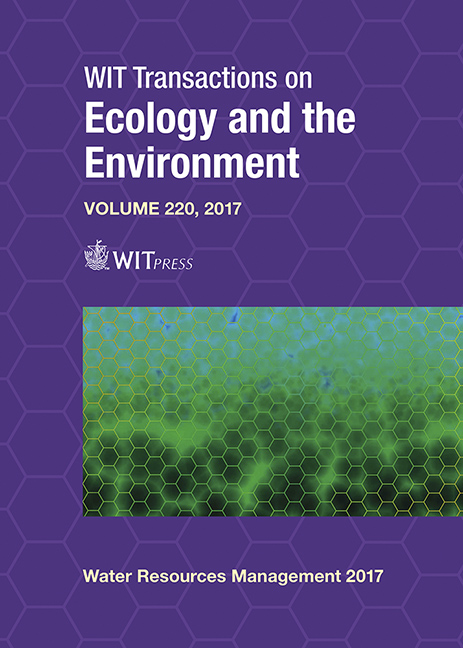WATER ACCESS AND COMMUNITY ENGAGEMENT: CREATING THE RIGHT ENVIRONMENT FOR MAXIMIZING THE BENEFITS OF COMMUNITY ENGAGEMENT PROCESSES AND INCREASING WATER PARTICIPATION IN NIGERIA
Price
Free (open access)
Transaction
Volume
220
Pages
11
Page Range
129 - 139
Published
2017
Size
227 kb
Paper DOI
10.2495/WRM170131
Copyright
WIT Press
Author(s)
ROSEMARY UGBAH, ANITA MELDRUM, KESTER EHIWARIO
Abstract
The perennial problem of access to water in developing countries needs new approaches in order to ensure safe and reliable water supplies are provided, particularly for rural and peri-urban communities. Sub-Sahara Africa has the greatest lack of access to improved water supplies of any region in the world. Nigeria will be facing absolute water scarcity by the year 2025. Recent empirical studies have appraised the relevance of community engagement, which involves the participation of all relevant stakeholders in determining the way water issues are dealt with in communities at the local level. Despite significant literature on the association between community participation, sustainability and improved water access, there is little literature about which particular type of community engagement process matters the most with regard to enhancing participation in Nigeria. In the Nigerian context, effective community engagement could be achieved through practical water management planning, awareness, consultation, collaboration and implementation. However, this is easier said than done. The practicality of engaging Nigerian communities in water management is highly challenging, with numerous barriers, including high rate of poverty, corruption and rapid population rise. This study is concerned with identifying the best strategies and activities that are practical, affordable and sustainable, that could reduce or eliminate participation barriers and so enhance informing, consultation, involvement, empowerment and partnership processes in Nigeria. The findings can be used to facilitate participation within Nigerian communities and help to underpin the provision of potable water for all.
Keywords
water access, safe and reliable water supply, stakeholders, engagement, participation, communities, water scarcity, bottom-up approach, partnership, consultation, empowerment, citizen control





